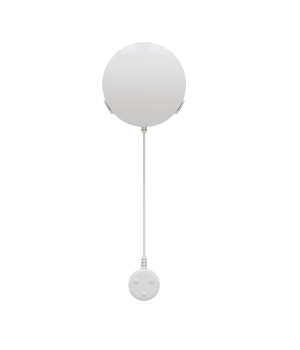Water Sensor Alarms: The Essential Home Safety Device
Let’s explore the benefits, features, and types of water sensor alarms to help you choose the right one for your needs.
What Are Water Sensor Alarms?
Water sensor alarms are devices designed to detect the presence of water and alert homeowners to potential leaks or flooding. They work by using sensors that can detect moisture levels, triggering an alarm when water is detected. These alarms can be placed in various locations around your home, such as basements, bathrooms, kitchens, and laundry rooms. By installing these devices, you can take proactive steps to protect your home from water damage.
Why You Need Water Sensor Alarms
1. Early Detection Saves Money
One of the primary benefits of water sensor alarms is their ability to detect leaks early. When a leak occurs, it can go unnoticed for days, weeks, or even months, leading to significant damage. By catching leaks early, you can save money on repairs and prevent the need for costly renovations. In fact, studies show that early detection can save homeowners thousands of dollars in damages.
2. Peace of Mind
Having a water sensor alarm installed in your home can give you peace of mind, especially if you travel frequently or spend extended periods away from home. With these alarms in place, you can rest easy knowing that your home is being monitored for potential water issues. Many modern devices also come with smartphone notifications, allowing you to stay informed even when you’re not home.
3. Protects Your Belongings
Water damage doesn’t just affect your home’s structure; it can also ruin your belongings. Furniture, electronics, and personal items can be damaged beyond repair. By installing water sensor alarms, you can safeguard your valuable possessions from water damage. This proactive approach to home safety can save you from heartache and financial loss.
Types of Water Sensor Alarms
1. Standalone Water Alarms
Standalone water alarms are simple devices that detect moisture and emit an alarm sound when water is present. They are easy to install and typically run on batteries, making them a great choice for homeowners looking for a budget-friendly option. Simply place the device in areas prone to leaks, such as under sinks or near water heaters, and you’re good to go!
2. Smart Water Sensors
Smart water sensors take home monitoring to the next level. These devices connect to your home Wi-Fi network and send alerts to your smartphone when water is detected. Many smart water sensors also integrate with home automation systems, allowing you to control other smart devices in your home. For example, you could set your smart thermostat to turn off if a leak is detected, preventing further damage.
3. Hardwired Water Sensors
For those looking for a more permanent solution, hardwired water sensors may be the way to go. These devices are installed directly into your home’s electrical system, providing continuous power and eliminating the need for battery replacements. Hardwired systems are often more reliable than battery-operated models and can be integrated with your home security system for added protection.
Choosing the Right Water Sensor Alarm
When selecting a water sensor alarm, consider the following factors:
- Sensitivity: Look for alarms that can detect small amounts of water, as early detection is crucial.
- Range: Ensure the alarm can cover the areas where you are most concerned about leaks.
- Alerts: Choose a model that provides notifications via loud alarms, smartphone alerts, or both.
- Power Source: Decide between battery-operated, hardwired, or smart sensors based on your preferences and needs.
Installation Tips
Installing water sensor alarms is usually a straightforward process. Here are some tips to ensure proper installation:
- Choose Strategic Locations: Place alarms in areas prone to leaks, such as near appliances, water heaters, and sump pumps.
- Follow Manufacturer Instructions: Each device may have specific installation requirements. Always read and follow the manufacturer’s guidelines.
- Test Regularly: Once installed, test your alarms regularly to ensure they are functioning correctly. This simple step can save you from a disaster down the line.
Conclusion
Water sensor alarms are an essential investment for any homeowner. By providing early detection of leaks and water intrusion, these devices can save you money, protect your belongings, and offer peace of mind. Whether you opt for standalone alarms, smart sensors, or hardwired solutions, the key is to choose the right one for your home and install it in strategic locations. With water sensor alarms in place, you can enjoy your home knowing you’re protected from the threat of water damage. Don’t wait for a disaster to strike; take action today to safeguard your home!



